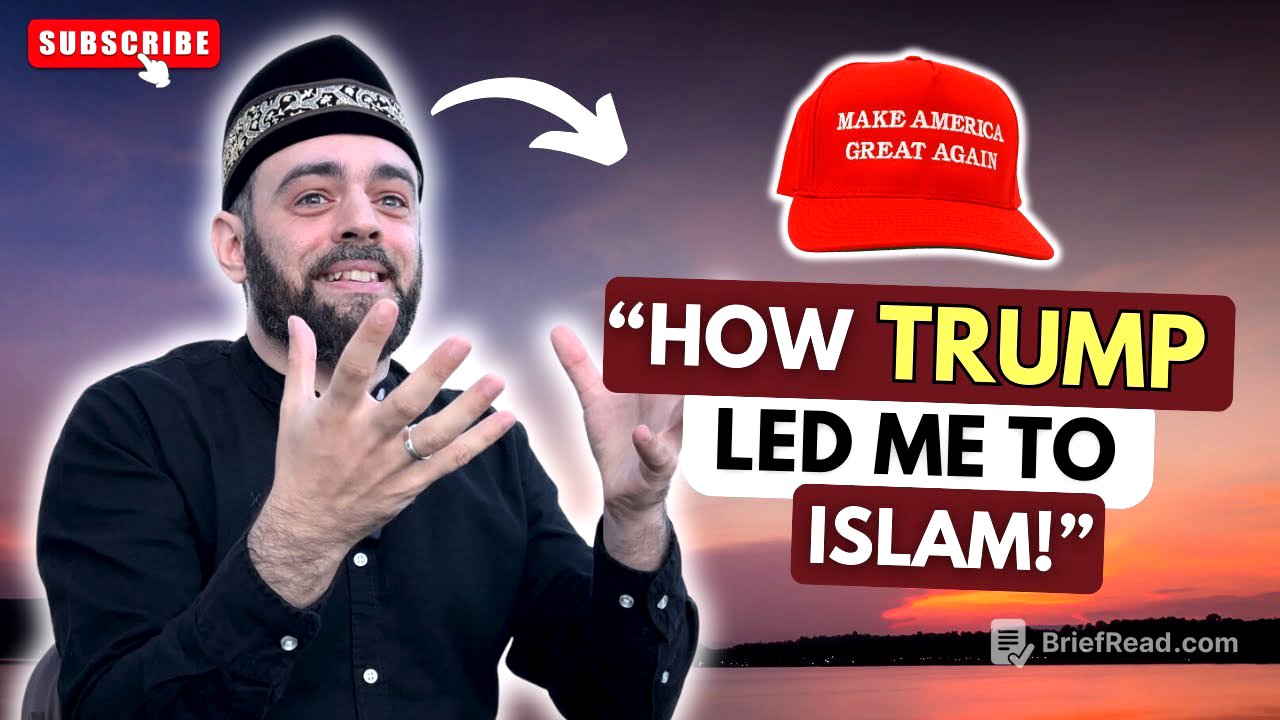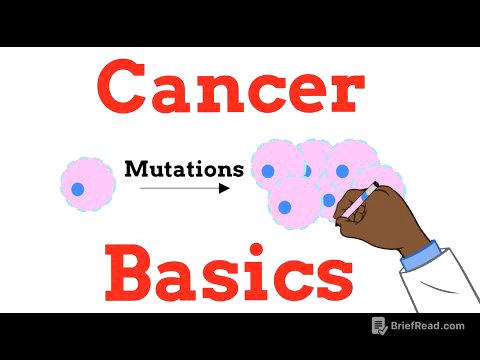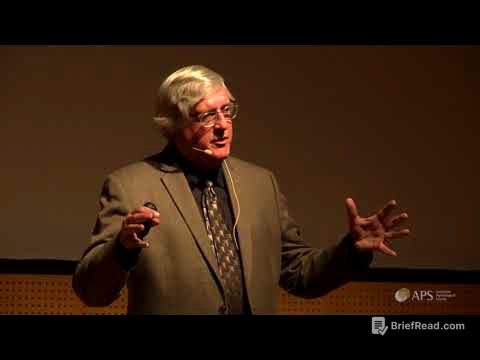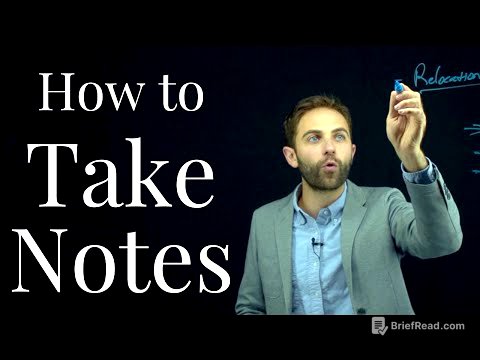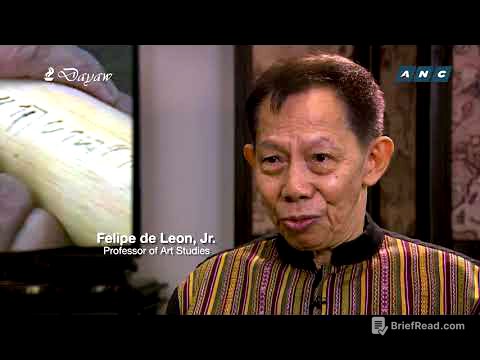TLDR;
The speaker, Marco, shares his journey through Christianity, atheism, and ultimately, Islam. He discusses the emotional and intellectual factors that influenced his religious shifts, including a breakdown during his time as a Franciscan friar, his fascination with Icelandic and Arabic languages, and his eventual conversion to Islam. Marco highlights the role of Donald Trump's anti-Islam rhetoric and his interactions with Muslim students in sparking his interest in the Quran. He also touches on his attraction to Islam's emphasis on personal responsibility and contributing to society's well-being, contrasting it with his perception of Christianity's passive approach. Marco also explains why he chose the Ahmadiyya Muslim Community, emphasizing its rejection of the death penalty for apostasy and its unique interpretation of the Messiah's return.
- Marco's religious journey from Catholicism to atheism to Islam.
- The influence of language learning and Icelandic landscapes on his spiritual questioning.
- Donald Trump's unexpected role in his exploration of Islam.
- The importance of personal responsibility and societal contribution in his embrace of Islam.
- His reasons for choosing the Ahmadiyya Muslim Community.
Introduction [0:00]
Marco, originally from Sicily, Italy, and currently residing in Iceland, shares that Donald Trump inadvertently triggered his interest in understanding and investigating Islam. Without Trump's narrative, Marco believes he might never have developed any interest in Islam. This curiosity was further fueled by his students, who were doing the opposite of what Trump was saying, prompting him to seek the truth by studying the Holy Quran.
Three Religious Phases [0:52]
Marco describes three main phases in his religious life: Christianity (Catholicism), atheism, and Islam (within the Ahmadiyya Muslim Community). As a Christian, he was active in a Franciscan community and considered becoming a priest at 16, desiring to sacrifice his life for religion and helping others. He became a postulant at 18 but left after a year and a half due to difficulties and emotional breakdown triggered by the illness and death of a friar from cancer.
Atheism as a Result of Anger [4:24]
After leaving the Franciscan order, Marco experienced a period of anger and sadness, feeling unwanted by God, which led him to reject religion and embrace atheism. He then focused on living a different life, finding a job in Sicily related to solar energy.
Iceland and the Return to Theism [5:11]
In 2010, Marco discovered Iceland through internet pictures and became fascinated with the Icelandic language, leading him to study it and eventually move there. Living in Iceland and witnessing its natural beauty, especially the sky, led him to question whether it could all be a product of random chance, marking his first step back towards theism. He started to believe that the problem atheists have with God is more related to morals and accountability.
Morality and Religion [9:41]
Marco observes that religions like Buddhism are appealing in Western society because they allow people to be spiritual without being religious, avoiding accountability and duties. He believes this stems from a desire for well-being without taking any steps forward. He contrasts this with his view of religion, which includes community, morals, duties, and a sense of connection.
Rejection of Christianity [12:03]
Marco explains why he would not return to Christianity, even though his initial rejection stemmed from anger. He criticizes the Christian idea of maintaining balance and remaining passive, where one returns to the same position after confession. He prefers the Islamic approach of actively moving forward and developing virtue. He finds the Christian concept of Jesus sacrificing himself for sins problematic, as it may disincentivize personal change and responsibility.
Islam and Personal Responsibility [15:10]
Marco emphasizes that Islam requires personal development and virtue. Muslims have a responsibility to contribute to society's well-being, as God created people with different abilities to care for each other. He found this aspect of Islam particularly appealing.
Arguments for the Existence of God [16:11]
Marco, as a linguist, discusses the improbability of the universe being a product of random chance, comparing it to linguistic data analysis where a single variant among thousands is unlikely to represent true variation. He argues that the odds of all variables aligning to guarantee life on a planet are so high that it points to design rather than chance. He believes that people often reject the idea of God because it implies morals and accountability.
Morals and the Rejection of God [18:26]
Marco suggests that people prefer explanations for existence that don't involve morals, such as the idea of being created by aliens as an experiment. He argues that even if one believes in God, the idea of a God who judges is less acceptable than one who doesn't, because it introduces morals and accountability.
Donald Trump and the Quran [20:12]
Marco reveals that Donald Trump's anti-Islam narrative during the 2015 election campaign, combined with his interactions with kind and hardworking Muslim students, led him to read the Holy Quran to understand the truth. He was teaching Icelandic to foreign students, some of whom were from Muslim countries, and saw a positive contrast to Trump's negative portrayal of Islam.
Attributes of God [21:55]
While contemplating theism, Marco considered the characteristics of God and concluded that God must be self-sufficient. This contrasted with the Christian idea that God needs people. He believed that God created people to experience life, and he found the same idea of self-sufficiency in the Holy Quran, which resonated with him.
Understanding the Quran [24:13]
Marco found the Quran's concept of God as one entity more logical than the Christian Trinity. He also understood that the war discussed in the Quran is a defensive war, which made sense to him. He argued that in a situation where a community is persecuted and forced to flee, they have the right to defend themselves when attacked again. He also noted that the Quran prohibits exceeding limits even when fighting disbelievers who surrender, which indicates that the initiative for conflict comes from those who want to exterminate the Muslim community.
Attraction to Islam [28:21]
By 2018, Marco felt drawn to Islam and had read the Quran multiple times. He could read the Arabic text, which gave him an advantage in understanding it. He then started praying.
The Trigger [29:34]
Marco reiterates that Donald Trump's negative narrative about Islam, combined with the positive example of his Muslim students, sparked his curiosity and led him to investigate Islam.
The Power of Prayer [30:13]
In January 2018, Marco started praying. From 2014, he had been experiencing a sleep issue where his brain would go into alarm mode, making him feel like he was not breathing. This issue became frequent, occurring almost every night by 2017. However, the very first day he started praying, this issue disappeared completely, without him even praying for it specifically.
Joining a Community [32:58]
Marco then considered joining a community but struggled with the Sunni and Shia acceptance of the death penalty for apostasy, which he found unacceptable. He believes that there is no compulsion in religion and that people should be free to leave Islam.
Rejection of Sunni and Shia Interpretations [34:11]
Marco explains that as a linguist, he cannot accept the Sunni and Shia idea that the Jesus mentioned in the Hadith is the same Jesus who lived 2,000 years ago and is still alive in body and soul. He presents linguistic arguments based on verses from the Quran to support his view that the term "Messengers" implies that all messengers have passed away. He also argues that the definite article used with plural nouns in Arabic implies maximality, meaning all of them, which contradicts the idea of a messenger still being alive.
The Ahmadiyya Muslim Community [39:36]
Marco explains that he found the Ahmadiyya Muslim Community through a Twitter profile of Kasim Rashid, who spoke about the "True Islam" campaign. The points on the website resonated with his understanding of the Quran. He then met a missionary from the community at a flea market and started reading their books, which he liked.
A Sign to Join [43:51]
In March 2018, a tragic event involving an Icelandic man who joined a group in Syria and was killed deeply affected Marco. During the Friday sermon, the topic of companions who sacrificed their lives for Islam resonated with him, giving him a different perspective on the Icelandic man's actions. He saw it as a sign and decided to join the Ahmadiyya Muslim Community that same day. He felt a strong conviction and realized that if he truly believed in Islam, he had to be active and contribute to society, not just remain comfortable.
